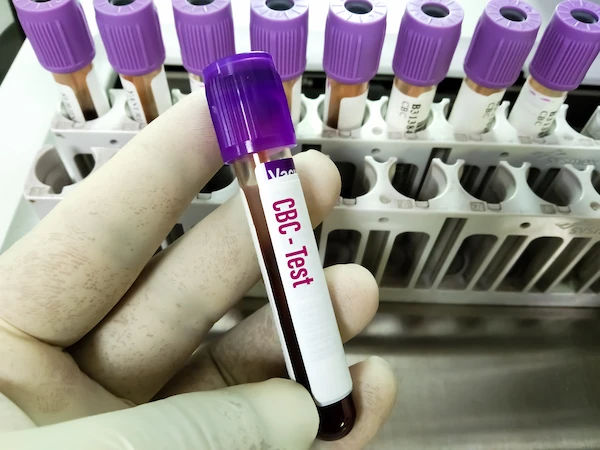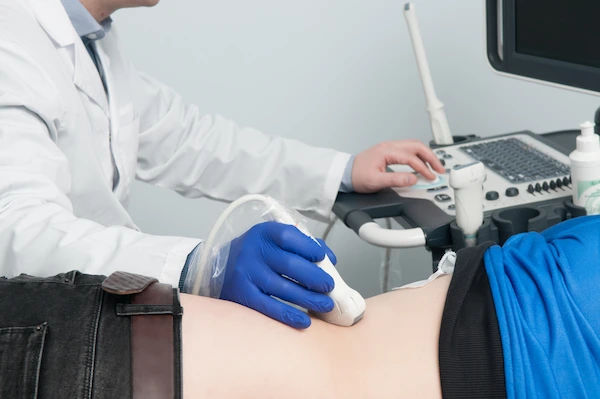Must-Do Tests for People with High Blood Pressure
Know the must-do tests for high BP patients. Learn about how, why, what tests are included, the frequency of tests, and who should get tested.

Written by
Last updated on 17th Jul, 2025

Introduction
High blood pressure, or hypertension, is often called a silent killer. It usually shows no symptoms but quietly damages your heart, kidneys, eyes, and blood vessels over time. While medications help control blood pressure levels, regular diagnostic tests are equally crucial. These tests offer a deeper understanding of how hypertension is affecting your organs, allowing for timely medical adjustments and better long-term health.
This article explains why these diagnostic tests matter, what they involve, and how often you should get them done to stay ahead in your hypertension management journey.
Why Testing Is Just as Important as Medication
Taking medicines for high blood pressure helps keep your readings within a target range. However, medication alone can’t show whether your internal organs are being protected. That’s where regular testing plays a vital role.
Hypertension places ongoing pressure on your arteries, making the heart work harder and potentially harming the kidneys, brain, and eyes. Even if your BP is under control, issues like high cholesterol or kidney damage might still be present.
Key Tests for People with High Blood Pressure
Diagnostic tests act like a health dashboard. They help your doctor personalise treatment, assess whether current therapies are working, and detect complications early before they become irreversible. Following are some of the key tests for people with high blood pressure.
1. Kidney Function Tests (KFT) / Renal Profile
The kidneys help regulate blood pressure and filter waste. Prolonged hypertension can damage their tiny blood vessels, leading to kidney disease or even kidney failure.
A Kidney Function Test (KFT), also known as a Renal Profile, assesses how well your kidneys are performing. Key parameters measured include:
- Creatinine: A waste product from muscle metabolism. Elevated levels indicate that your kidneys may not be functioning efficiently in filtering waste.
- Urea (Blood Urea Nitrogen - BUN): Another waste product that the kidneys filter. High levels can suggest impaired kidney function.
- Estimated Glomerular Filtration Rate (eGFR): This calculation, based on your creatinine level, age, sex, and ethnicity, provides an estimate of how well your kidneys are filtering blood. A low eGFR indicates reduced kidney function.
- Electrolytes (Sodium, Potassium, Chloride): These minerals are crucial for fluid balance and nerve and muscle function, and their levels are regulated by the kidneys. Imbalances can indicate kidney issues.
- Uric Acid: High levels can be associated with kidney stones and gout, and can also be elevated in kidney disease.
2. Lipid Profile Test
Hypertension and high cholesterol often go hand-in-hand, increasing the risk of atherosclerosis (narrowed arteries), heart attack, and stroke.
A Lipid Profile test measures different types of fats in your blood:
- Total Cholesterol: The overall amount of cholesterol in your blood.
- Low-Density Lipoprotein (LDL) Cholesterol ("Bad" Cholesterol): High levels contribute to plaque build-up in arteries.
- High-Density Lipoprotein (HDL) Cholesterol ("Good" Cholesterol): Helps remove excess cholesterol from arteries, protecting against heart disease.
- Triglycerides: Another type of fat in the blood. High levels, especially in combination with high LDL and low HDL, increase heart disease risk.
- Very-low-density lipoprotein (VLDL) Cholesterol: Another type of "bad" cholesterol that contributes to plaque build-up.
Understanding your lipid profile is crucial for managing your cardiovascular risk. Your doctor can recommend lifestyle modifications or medication to optimise these levels.
3. Blood Sugar Profile (Fasting Blood Sugar & HbA1c)
High blood pressure and diabetes often co-exist. Uncontrolled blood sugar adds to vascular damage and heart strain.
Essential sugar tests:
- Fasting Blood Sugar (FBS): Checks glucose levels after fasting.
- HbA1c: Reflects average blood sugar over 2 to 3 months, useful for diagnosing prediabetes or monitoring diabetes.
4. Cardiac Risk Panels & Heart Health Check-ups
Beyond routine BP readings, these tests help assess actual heart health and predict cardiovascular events.
Common heart-related tests:
- CBC (Complete Blood Count): Can detect anaemia or inflammation.
- C-Reactive Protein (CRP): A marker of inflammation linked to heart disease.
- ECG (Electrocardiogram): Detects irregular heartbeats or signs of damage.
- 2D Echo (Echocardiogram): Ultrasound to assess heart structure and function.
- TMT (Treadmill Stress Test): Checks how your heart handles physical stress.
You can book full-body or heart-focused check-ups, such as the Apollo Prime Plus Full Body Checkup, which includes heart, kidney, lipid, and sugar tests.
Get These Tests To Get A Yourself Checked up
How Often Should You Get These Tests?
The frequency of these "must-do" tests for high blood pressure patients depends heavily on your individual blood pressure history, existing health conditions, and your doctor's recommendations. There's no one-size-fits-all answer, but here's a general guide:
- Newly Diagnosed or Uncontrolled Hypertension: If you've recently been diagnosed or your blood pressure is not yet consistently within the target range, your doctor will likely recommend more frequent testing. This might involve blood pressure checks at home multiple times a week, and comprehensive lab tests (kidney, lipid, sugar, and cardiac panels) every 3 to 6 months to assess impact and treatment effectiveness.
- Well-Controlled Hypertension with No Complications: For those with well-managed blood pressure and no other significant health issues, annual comprehensive check-ups are generally recommended. This would include repeat kidney function tests, a lipid profile, and blood sugar checks to ensure stability. Your doctor might also suggest an ECG periodically.
- Hypertension with Co-existing Conditions (Diabetes, High Cholesterol, Kidney Disease): If you have high blood pressure along with other chronic conditions, your testing frequency will be more aggressive. Your doctor will likely recommend blood sugar and lipid profile tests every 3 to 6 months, and kidney function tests at similar intervals or even more frequently, depending on the severity of the kidney involvement. Cardiac assessments (ECG, 2D Echo) might also be more frequent.
- Family History of Cardiovascular Disease: Even with well-controlled blood pressure, a strong family history of heart disease or stroke might warrant more proactive testing, including regular lipid profiles and possibly more frequent cardiac screenings, as determined by your doctor.
- Lifestyle Changes: If you've recently made significant lifestyle changes to manage your blood pressure (e.g., diet, exercise, weight loss), your doctor might recommend follow-up tests sooner to see the impact of these changes on your overall health markers.
Always remember that this is a general guide. Your healthcare provider is the best person to determine the appropriate testing schedule for your specific needs, considering your medical history, current health status, and response to treatment. Do not hesitate to discuss your concerns and ask questions about the recommended frequency of your tests.
Sharing and Understanding Your Test Reports
After testing, make sure your reports are shared with your doctor for correct interpretation and next steps.
What to Check in Your Report?
- Your name and test date
- Each parameter’s value, reference range, and units
- Any interpretive comments from the lab
How to Share with Your Doctor?
- Use the Apollo 24|7 app for instant digital access
- Bring printed copies for in-clinic visits
- Keep a health journal with:
- Home BP readings
- Medications
- Test results
This helps track your progress and guides future treatment decisions.
Why Choose Apollo 24|7 for Diagnostic Testing?
Apollo 24|7 offers a trusted and convenient platform to manage your diagnostic needs, especially for chronic conditions like hypertension.
Benefits:
- Home Sample Collection: No need to visit a lab
- Timely Reports: Most results available within 24 hours
- Digital Access: Easy to download and share reports
- Expert Network: Reliable phlebotomists and accredited labs
- Wide Range of Tests: Individual and bundled packages
- Apollo Trust: Backed by one of India’s most respected healthcare providers
Conclusion
Managing high blood pressure is more than just taking pills; it’s about keeping a constant eye on how the condition affects your vital organs. Regular diagnostic tests for your kidneys, heart, cholesterol, and blood sugar levels offer a clear view of your internal health and help prevent serious complications.
By staying informed, scheduling the right tests at the right time, and working closely with your doctor, you take charge of your health. Tools like Apollo 24|7 make it easier to stay consistent with testing, allowing you to live a healthier, longer life free from the hidden damage of uncontrolled hypertension.






.webp)
